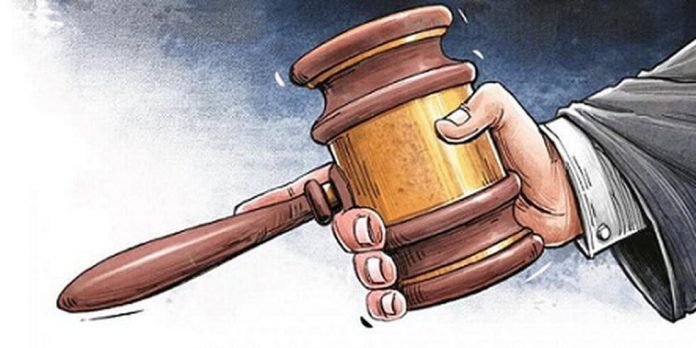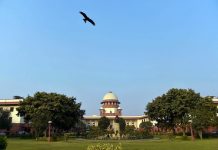This article is written by Aastha Verma, from Kalinga University, Raipur Chattisgarh. The article discussed the detailed analysis of the remarks on High Court murder judgment and contempt proceedings against K. Sudhakaran.
Table of Contents
Introduction
According to the Contempt of Court Act, 1971 (hereinafter referred to as the Act) the contempt can be either civil or criminal which means willful disobedience to any judgment, decree or publication of any matter of any act which lowers the authority of the court or interferes with any judicial proceedings. Article 129 of the Constitution of India defines Contempt of Court in which the Supreme Court has the power to punish for contempt of itself and its subordinates court as well. Article 142 of the Indian Constitution empowers the court to provide punishment for contempt subject to laws made by the parliament. Fundamental rights are guaranteed under Part III of the Indian Constitution. Article 19(1)(a) talks about the freedom of speech and expression which is the most sensitive as well as controversial part of the constitution. K. Sudhakaran is a member of the Indian National Congress (INC) who has made a disgraceful and disrespectful remark on the decision made by the High Court against whom contempt proceedings were started by the Advocate General of Kerala.
Contempt of Court Act, 1971 and it’s objective
Section 2(c) of the Act defines the term criminal contempt. The publication of any matters whether by words, spoken or written, or by sign or visible representation lowers or tends to lower the reputation of the court or interfere with the administration of justice is liable under Section 2(c) of the act.
It is an attack on an individual Judge or the Court as a whole with or without referring to a particular case by giving the defamatory statement upon the character or the ability of the judge.
In the case of Hari Singh Nagra v. Kapil Sibal (2010), the court held that the authority of the court shall not be confused with the judges as an individual. Where the contemptuous comment is made on the judge as an individual the same may amount to defamation but the charges of contempt cannot be invoked against such actions.
The objective of the Act is to define and limit the power of the court in punishing contempt of court and to regulate their procedure. Section 12 of the Act deals with the punishment for contempt of court. The power has been given to the Supreme Court and the High Court.
The alleged person will be punished for the simple imprisonment which may extend to six months or fine up to Rs. 2000/- or both. However, the accused may be discharged or emitted from the punishment if he makes an apology and should satisfy the court.
The court can not impose a sentence for the contempt of court in excess of what is prescribed in the act either in respect of itself or of a subordinate court. Section 20 of the Act provides the limitation for the action of contempt. No court shall initiate any proceedings of contempt in two conditions –
- Either the proceedings are on his motion; or
- After the period one year from the date on which the contempt is alleged to have been committed.
Criminal contempt proceeding against K Sudhakaran : an insight
A group of lawyers presented a petition in the Supreme Court seeking criminal contempt action against K. Sudhakaran for alleged remarks against certain retired judges of the Supreme Court and the petition was directly presented to the Chief Justice of India.
In the petition, they said under Article 129 of the Constitution the Supreme Court sentenced the former Minister of Kerala Balakrishna Pillai to one-year of rigorous imprisonment in the case at the public meeting. He defamed the retired judges of the Supreme Court and the institution.
Further, they added that he outraged and lowered the authority of the highest court of India in the eyes of the public and interfered with the judicial proceedings. He also criticized the Supreme Court for the imprisonment given to the former minister in his contemptuous speech and levelled up by bribery and corruption charges against the Judges.
It is a constructive criticism against how the judgment came to be pronounced and on the character of the Supreme Court and its judges. A First Information Report under Section 154 of the Code of Criminal Procedure, 1973 was also registered with the Delhi Police and Police to investigate the alleged crime and check whether he was part of the crime giving a bribe to the judge.
He claimed that a litigant representing a group paid bribery in his presence. The litigant denied the charges of K. Sudhakaran says it is made off the cuff. He approached the Supreme Court to restore the license that was cancelled by the State Government.
As the High Court upheld the decision of the government. The police registered the case on charges under Section 120 and Section 202 of the Indian Penal Code, 1860 for concealing design to commit an offence punishable with imprisonment and intentional omission to give information of offence who is bound to inform.
The Union Minister of Law M. Veerapa Moily disapproved of the statement of Congress MP K. Sudhakaran that he witnessed the judge taking bribes 15 years ago. The random remarks on such a big institution make people lose their faith. You cannot pass such remarks that disrespect the highest court of India that was built many years ago with the great efforts and contribution of the constituent assembly.
Shuhaib murder case
The Shuhaib murder case is a high profile case as it involves the murder of the Congress Youth member Shuhaib. Advocate General sanction a petition seeking the initiation of contempt proceedings against K. Sudhakaran for his contempt regarding the High Court Judgment in the murder case. The politician in their speech termed Kerala High Court Division Bench as disgraceful and made derogatory remarks about the judges who comprised the bench going to the extent of questioning their intellectual abilities. The case in which the High Court concerned the murder of Shuhaib one of the youth congress member. The case was highlighted by the Congress as a demonstration of Communist Party of India (CPIM) culture of eliminating rivals. After the single bench directed a Central Bureau Investigation (CBI) inquiry into the death of Shuhaib, the division bench set aside the judgment in 2018 which was later followed by the proceedings of the Supreme Court. According to the High Court there was not much evidence available before the court and the report was intrinsically unjust and distorted.
The petition in High Court had alleged that prime accused was close to in high echelons of power including CPIM’s District Secretary asserted that current investigation was going on in a manner dictated by the ruling party who control the police machinery in the kannur district. Further added that Chief Minister Pinyari Vijayan’s rejection of demand for a CBI probe was due to pressure from the district committee of CPM Party.
After the single bench allowed the plea, the same was set aside by the Division Bench upon the appeal filed by the state government. The bench noticed that there was hardly any material available before the writ court that could lead to assume that investigation was unfair or biased and the crime was termed as ‘hasty direction’ by the division bench. Also, the division bench noticed that the state police had arrested six persons and recovered the weapon alleged during the crime before the case was taken into consideration by the court. The Court wanted further details regarding the investigation and asked for the production of a case diary for the points which are not clear. Also, it did not grant any opportunity to the state government to file a counter affidavit in response to the writ petition. The direction was issued to transfer the investigation of the case to CBI. Such a hasty direction was not warranted on the facts and circumstances of the case.
Kerala Advocate General sanctioned petition against K. Sudhakaran
The Advocate General has granted permission to take action against Congress MP K. Sudhakaran for his remarks against the High Court in connection with the case of Suhaib murder case and charge him for contempt of court. The order was pronounced on the petition filed by a High Court lawyer. He has made a disgraceful and disrespectful remark expressing reservations about the intellectual ability of the judges. So that the public can lose confidence in the court’s decision. In a public event held in Kannur, he pronounced that the verdict is given out of mind and will lose their trust from the public. The bench quashed the verdict leaving the case to the Central Board of Investigation (CBI). K. Sudhakaran said he has not said anything unconstitutional and many statements are against the Court and not against the judges.The High Court verdict which ruled that a CBI probe is not needed is dishonourable. The Advocate General submitted a plea to the High Court Advocate starting with the statement of K. Sudhakaran amounts to contempt of court.
Conclusion
The issue of criminal contempt keeps on rolling on the discussion table before the citizens. The laws related to contempt of court overlaps with the Indian Penal Code, Contempt of Court Act, 1971 and contempt powers are given to the Supreme Court and High Court under the Indian Constitution. The Supreme Court is the Highest Court of India and has ruled that it has the power to punish for contempt not only of itself but also high courts, subordinate courts and tribunals that are functioning in the Country. Not only higher courts but also lower courts should be given this power. K. Sudhakaran MP of the Congress Party alleges that judges of the Supreme Court take bribery, are corrupt and the public should not trust them where the Union Minister of the law said that such remarks are disrespectful as great efforts are taken to build such a huge institution.
References
- https://www.thehindu.com/news/national/kerala/charge-uapa-against-those-involved-in-mansoor-murder-case-k-sudhakaran/article34281325.ece
- https://english.mathrubhumi.com/mobile/news/kerala/ag-allows-booking-contempt-of-court-case-against-k-sudhakaran-for-remark-against-judge-1.5632952
- https://www.livelaw.in/news-updates/kerala-ag-sanctions-contempt-proceedings-k-sudhakaran-hc-shuhaib-murder-judgment-173427
- https://www.indiacode.nic.in/handle/123456789/1514?locale=en
LawSikho has created a telegram group for exchanging legal knowledge, referrals, and various opportunities. You can click on this link and join:
 Serato DJ Crack 2025Serato DJ PRO Crack
Serato DJ Crack 2025Serato DJ PRO Crack











 Allow notifications
Allow notifications


